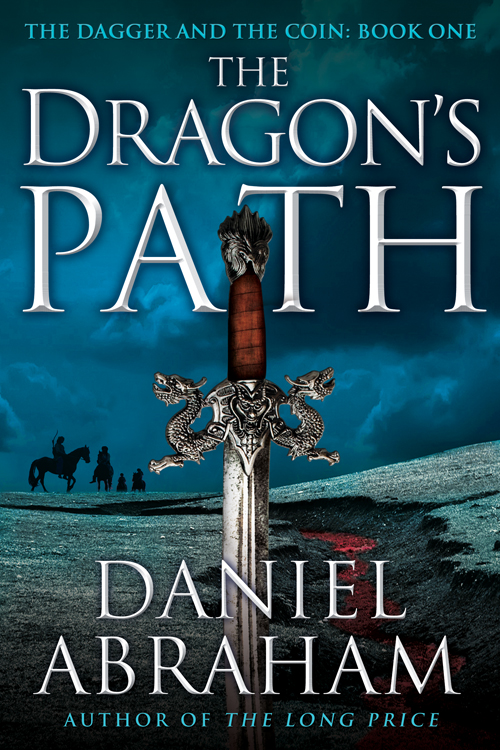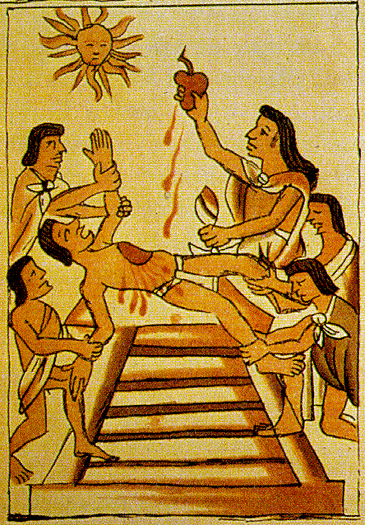 The story is told through the voices of two distinct characters diametrically opposed to the other's views on just about everything. The first is Franck's James Holden - XO of the Canterbury, an ice-hauling freighter. Despite some previous naval experience and being an Earther in the Outer Planets, Holden has remained an optimistic fellow. He sees the solar system in black-and-white terms: "So, now the Canterbury and her dozens of sister ships in the Pur'n'Kleen Water Company made the loop from Saturn's generous rings to the Belt and back hauling glaciers, and until the ships aged into salvage wrecks. Jim Holden saw some poetry in that." Holden's universe is an easy math equation where people are naturally good and everything adds up.
The story is told through the voices of two distinct characters diametrically opposed to the other's views on just about everything. The first is Franck's James Holden - XO of the Canterbury, an ice-hauling freighter. Despite some previous naval experience and being an Earther in the Outer Planets, Holden has remained an optimistic fellow. He sees the solar system in black-and-white terms: "So, now the Canterbury and her dozens of sister ships in the Pur'n'Kleen Water Company made the loop from Saturn's generous rings to the Belt and back hauling glaciers, and until the ships aged into salvage wrecks. Jim Holden saw some poetry in that." Holden's universe is an easy math equation where people are naturally good and everything adds up.On the other side of this is Abraham's Joe Miller. A detective on Ceres Station in the Belt. A noirish cynic. The guy who's seen it all and buried it at the bottom of a whiskey glass. Though he works for a security company owned by an Earth corporation, Miller is a Belter by birth and distrustful of anyone who's ever seen a sky or not had their water and their air pumped in from outside. Yet, what makes Miller a good detective is his ability to detach himself when necessary, to notice the facts, regardless of personal sentiment. As Abraham notes, "When Miller started working homicide, one of the things that had struck him was the surreal calm of the victims' families. People who had just lost wives, husbands, children, and lovers. People whose lives had just been branded by violence. More often that not, they were calmly offering drinks and answering questions, making the detectives feel welcome...A month earlier Miller...had been the steadying hand of the law. Now they were employees of an Earth-based security contractor. The difference was subtle, but it was deep."
Holden's and Miller's worlds collide when the Canterbury picks up a distress signal from a derelict ship - the Scopuli - and responds, to discover the horror that's happened to its crew. As Holden transmits data that ignites an already tense situation between the Belt and Mars, Miller is assigned the job of searching for the missing Julie Mao. The link: Mao was one of the crew on the Scopuli.
There is a lot to like in Leviathan Wakes. The aforementioned "vomit zombies" are a real treat. There is a great backstory concerning the colonization of the solar system and the evolutionary process of humanity. There's a sleek generation ship built by the Mormons. There are gunfights and secretive corporations. There are elements of hard SF mixed with rock 'em sock 'em adventure, giving the story a realistic and gritty tone throughout. Hints of Heinlein and Clarke are all over the place.
However, the foremost engaging part of Leviathan Wakes is the relationship between Miller and Holden. It's about watching these characters grow and feed off each other (zombie pun intended) and shape events around them, understanding the future from their point of view. Through Miller's eyes Holden can look a naive fool who believes the best in people; through Holden's eyes Miller is an unpredictable wild man with a penchant for getting shot at and shooting everything in sight. Yet, through their own eyes, each man is sensible and rational and seeing things through the best way he can. Highly Recommended.
Leviathan Wakes is the first in the Expanse series and will be released June 15th, 2011. It is available for pre-order now.
Also Recommended: Dread Empire's Fall Trilogy by Walter Jon Williams.

